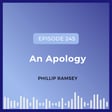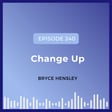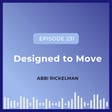
The Art of Influence
In this engaging episode of the Uncommon Wealth Podcast, host Phillip Ramsey welcomes art influencer Liz Lidgett, who shares her journey from being the art kid in school to owning a successful gallery in Des Moines, Iowa. The discussion delves into Liz's path of pursuing her passion for art despite challenges and societal expectations. Highlighting her unique approach, Liz details how her grandmother’s encouragement played a vital role in igniting her passion for art, eventually leading to the creation of Liz Lidgett Gallery and Design which thrives on inclusive and diverse art representation, specifically focusing on midwestern art landscapes.
This episode highlights the pivotal moment when Liz transitioned from the corporate world to entrepreneurship, overcoming adversity by turning the obstacles of the pandemic into opportunities for growth through e-commerce. Liz shares valuable insights into her commitment to artists and clients, her definition of success, and the ethical backbone of her business. The dialogue is vibrant with themes of passion, loyalty, and resilience, portraying Liz as a beacon of light for those aspiring to marry personal passion with professional life.
Key Takeaways:
- Liz Lidgett emphasizes the importance of pursuing your passion relentlessly, as demonstrated by her transition from corporate life to owning a gallery.
- The gallery’s success is largely attributed to its diversified collection, focusing on making art accessible with pieces ranging from $250 to $25,000.
- Through adversity during the pandemic, the gallery adapted by launching an e-commerce platform, reaching art lovers across all 50 states and several countries.
- Liz places high emphasis on ethical business practices in the art world, advocating for timely communication and payments to artists.
- A supportive partner, communication, and teamwork are vital components of maintaining balance in both personal and professional aspects of life.
Notable Quotes:
- "I think that doing good is good business, and I know that doing the right thing can make you successful."
- "Sometimes you're the lead singer and sometimes you're the tambourine player."
- "You take the materials in front of you and create something from nothing every single day—it’s incredible!"
- "Passion is infectious. I know my demeanor changes when I'm talking about art."
- "In Des Moines, you need a great idea, and people will rally around because we support our own."
Resources:
- Visit Liz Lidgett Gallery and Design in the East Village, Des Moines.
- Follow on Instagram: @lizlidgettgallery for gallery updates and @lizlidgett for personal insights.
- Check out the podcast "Ten Minute Masterpieces" for art insights.



















